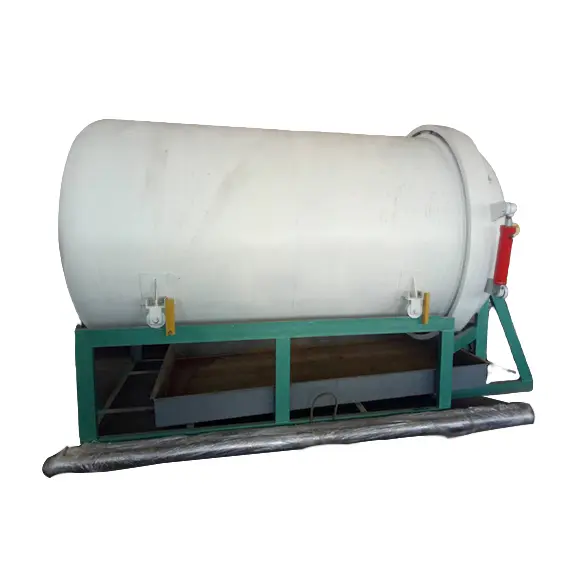Nov . 07, 2024 06:38 Back to list
China's Leading Hot Press Oil Machine for Efficient Oil Extraction
The Rise of Hot Press Oil Machines in China
In recent years, China has witnessed a significant transformation in its agricultural sector, particularly in the production of edible oils. Central to this evolution is the increasing adoption of hot press oil machines, which have revolutionized the extraction and processing of vegetable oils. This article delves into the significance, functionality, and impact of these machines on the Chinese economy and environment.
Understanding Hot Press Oil Machines
Hot press oil machines operate by applying heat and mechanical pressure to oilseeds to extract oil efficiently. Unlike cold pressing, which maintains low temperatures during extraction, hot pressing involves heating the seeds before extraction, thus maximizing oil yield and enhancing flavor. This method is particularly popular for processing seeds such as peanuts, soybeans, sunflower seeds, and sesame.
The process begins with cleaning and drying the seeds, followed by heating them to a specific temperature, typically between 100 to 120 degrees Celsius. The heated seeds are then subjected to pressure in the machine’s chamber, where oil is expelled naturally. The remaining cake, which is the solid residue left after oil extraction, can be utilized as animal feed or for further processing.
Economic Significance
The surge in the use of hot press oil machines has had a notable impact on the Chinese economy. As one of the world's largest consumers of edible oils, China has heavily invested in domestic oil production to reduce reliance on imports. The deployment of hot press oil machines has enabled local farmers and small-scale producers to enhance productivity and oil quality.
This technological advancement aligns with the government’s initiatives to promote sustainable agriculture and boost rural development. By leveraging modern equipment, local producers can increase their output, generate higher incomes, and contribute to food security. Moreover, the widespread availability of these machines has encouraged entrepreneurship, with numerous small enterprises emerging to meet the growing demand for various edible oils.
china hot press oil machine

Health and Quality Benefits
In addition to economic advantages, hot press oil machines offer significant health benefits. The hot pressing process preserves essential nutrients and flavors in the oil, resulting in a healthier product compared to oils extracted through chemical processes. The oils produced are rich in unsaturated fats, vitamins, and antioxidants, appealing to health-conscious consumers.
Furthermore, as quality has become a key differentiator in the market, the rise of hot press oil machines has facilitated the production of premium, organic oils. Many consumers are increasingly favoring cold- and hot-pressed oils for their perceived health benefits, leading to a shift in consumption patterns. This demand has prompted manufacturers to innovate and cater to a more discerning clientele.
Environmental Considerations
While the economic and health benefits of hot press oil machines are clear, their environmental impact must also be acknowledged. The traditional oil extraction methods often resulted in significant waste and environmental degradation. However, with advancements in technology, modern hot press machines are designed to be more energy-efficient and environmentally friendly.
Many manufacturers focus on creating machines that minimize waste by utilizing every part of the oil seed. For instance, the press cake that remains post-extraction can be repurposed, reducing overall environmental footprints. Additionally, some companies are investing in renewable energy sources to power their operations, further contributing to sustainable production practices.
Conclusion
The rise of hot press oil machines in China marks a pivotal advancement in the agricultural and food processing sectors. These machines not only enhance oil production efficiency but also support economic growth, improve health outcomes, and foster environmental sustainability. As the demand for quality edible oils continues to rise, this technology is poised to play a crucial role in shaping the future of the edible oil market in China. Embracing innovation while balancing economic development with ecological responsibility will be essential in creating a sustainable and prosperous future for the industry.
-
HP290 First Press Oil Expeller Machinery: Efficient Oil Extraction
NewsAug.02,2025
-
Top Food Oil Refined Unit Companies w/ GPT-4 Turbo Tech
NewsAug.01,2025
-
Premium Black Seed Oil Expeller - High Efficiency Cold Press Oil Machine
NewsJul.31,2025
-
Oil Processing Equipment - High-Efficiency Flaking Machine
NewsJul.25,2025
-
High-Efficiency Peanut Oil Refined Machine for Quality Oil Production Leading Exporters & Companies
NewsJul.08,2025
-
High Efficiency Sunflower Seed Oil Press – Leading Cooking Oil Press Machine Factories & Suppliers
NewsJul.08,2025
